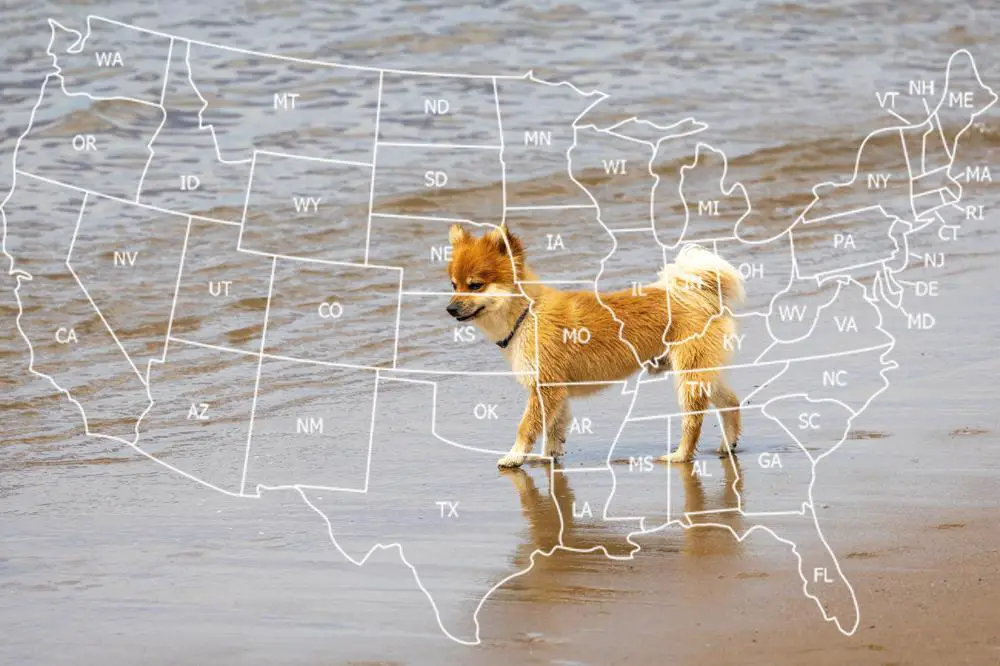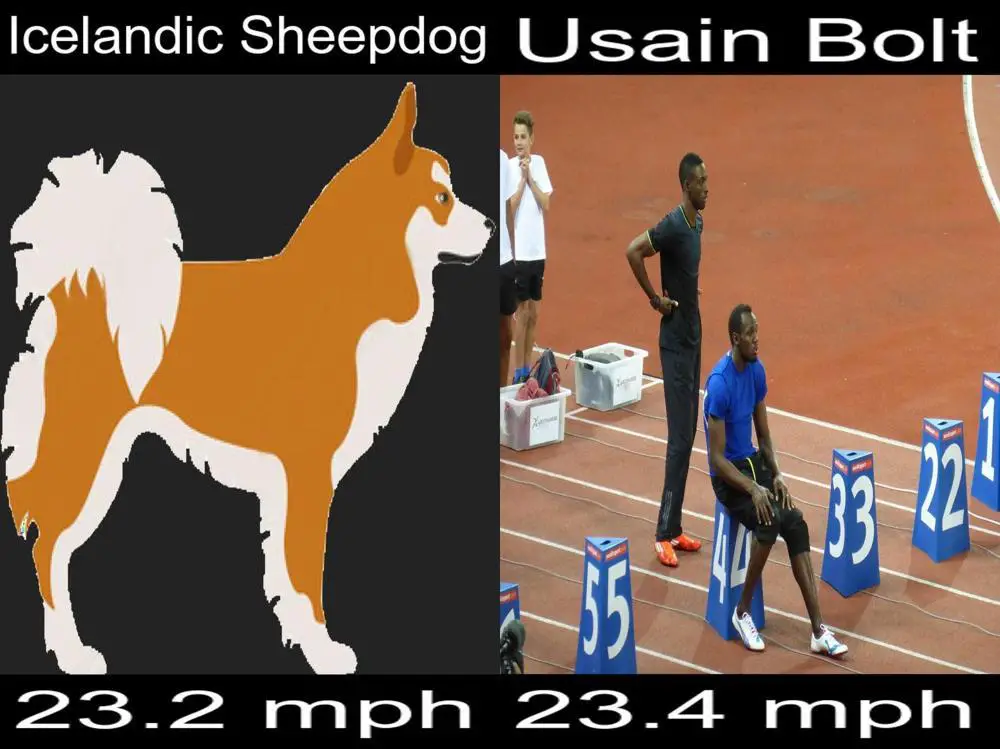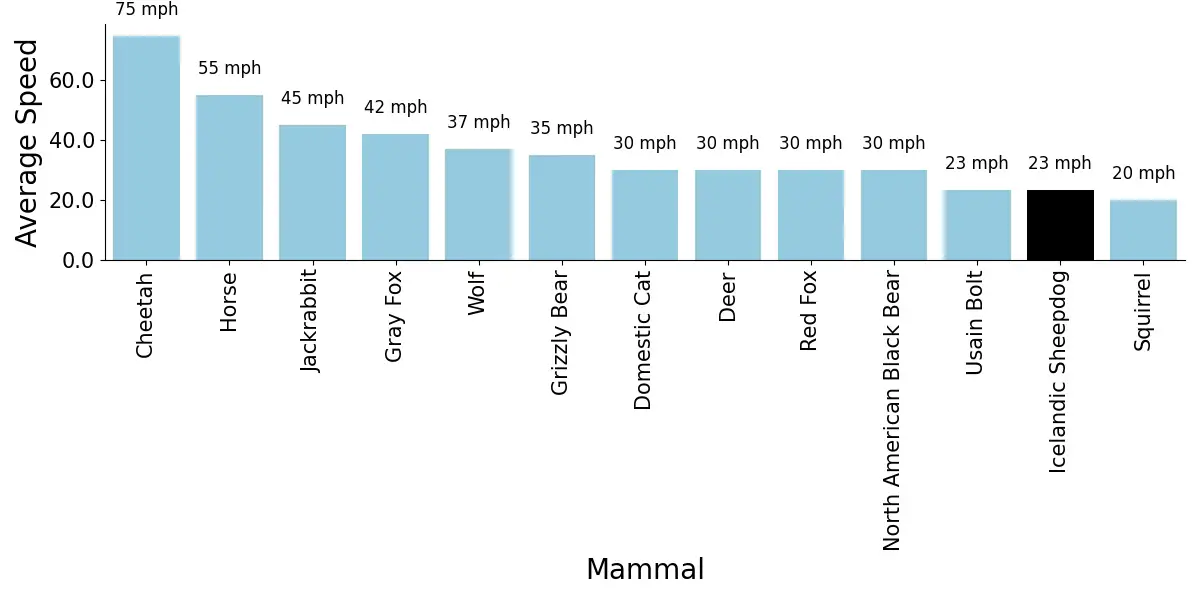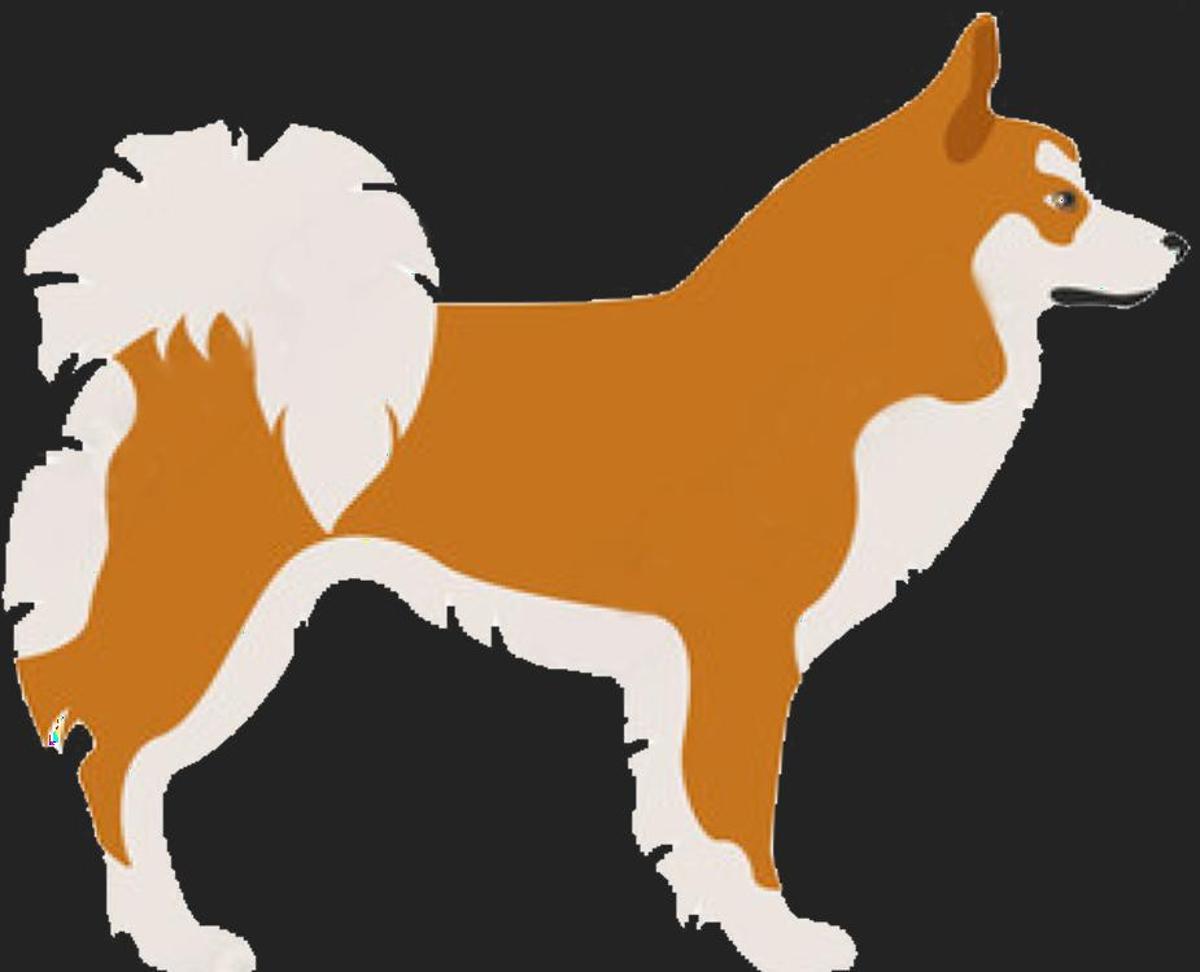Quick Links: Table of Contents
- Icelandic Sheepdog Breed Overview
- History of the Icelandic Sheepdog Breed. Where Icelandic Sheepdogs came from
- What the Icelandic Sheepdog Looks Like
- Best Icelandic Sheepdog Breeders
- What Colors do Icelandic Sheepdogs Have?
- How Long Icelandic Sheepdogs Live
- Icelandic Sheepdog Litter Size
- How Fast Icelandic Sheepdogs Can Run
- Good Names for Icelandic Sheepdogs
- How Popular are Icelandic Sheepdogs with New Dog Owners?
- Health Problems in Icelandic Sheepdogs and How to Prevent Them
- Dog Breeds That Are Similar to Icelandic Sheepdogs
- Other Things to Know About Icelandic Sheepdogs
Icelandic Sheepdog Breed Overview
The Icelandic Sheepdog is a medium-sized dog.
The adult Icelandic Sheepdog stands 16 to 18 inchestall at the shoulder.
The Icelandic Sheepdog belongs to the Herding Dogs group.
Dogs in the Herding Dogs group, like the Icelandic Sheepdog, were bred for moving livestock, including sheep, cattle, and even reindeer.
Herding dogs work closely with their human shepherds, and their natural intelligence and responsiveness make them highly trainable.
Herding dogs have high levels of energy, which needs to be channeled properly to prevent destructive behavior.
Herding breeds are protective of their people and property and make excellent watchdogs. Their intelligence, agility, and activity level make them well suited to dog sports.
The fact that Icelandic Sheepdogs belong to the Herding Dogs group is one of the reasons why Icelandic Sheepdogs have the personality and temperament that they have.
The temperament of the Icelandic Sheepdog is generally described as:
- Agile
- Alert
- Cheerful
- Energetic
- Hardy
- Inquisitive
History of the Icelandic Sheepdog Breed. Where Icelandic Sheepdogs came from
The Icelandic Sheepdog is the only breed known to have its roots in Iceland.
It is believed that in the ninth century, the Vikings brought the ancestors of this species to Iceland.
His primary responsibility was defending the sheep`s herds from vast birds of prey, especially the lambs.
The Icelandic Sheepdog is thought to have arrived in Iceland from Norway.
Dogs that resemble the Icelandic Sheepdog have been found in graves in Norway and Sweden.
Given that he is connected to the Karelian Bear Dog, it seems clear that the Icelandic Sheepdog originated in the east and was brought to Norway.
A pandemic of canine distemper in the late 19th century nearly led to the Icelandic sheepdog`s extinction.
This illness claimed the lives of Icelandic Sheepdogs over 75%.
.
What the Icelandic Sheepdog Looks Like
The double, thick coat of the Icelandic Sheepdog is also waterproof.
He is available with either a short coat or a long coat.
Short-coated icicles will have a medium-length, fairly coarse outer coat and a soft, dense undercoat.
He will have a bushy tail and hair that is in proportion to his coat in length.
His tail has long, bushy hair that is in proportion to the length of his coat.
His face, head, and ear hair ought to be shorter.
Although the Icelandic Sheepdog comes in a variety of hues, only one should ever take center stage.
Tans of various shades, chocolate browns, greys, and blacks are the most common colors.
.
Best Icelandic Sheepdog Breeders

We have researched reputable Icelandic Sheepdog breeders that you can buy a puppy.
Go to this page for our complete list of reputable Icelandic Sheepdog breeders in various states in the United States.
On this page, you will see how much these breeders sell their puppies for, and how many puppies they have available.
A few of these breeders are listed below.
-
Vali Icelandics
Puppy Price: Check with breeder
-
Pikatti
Puppy Price: Check with breeder
-
Tri-Star Icelandics
Puppy Price: Check with breeder
-
Fox Meadow Icelandic Sheepdogs and Chinooks
Puppy Price: Check with breeder
-
Hidow Shelties and Icelandic Sheepdogs
Puppy Price: Check with breeder
What Colors do Icelandic Sheepdogs Have?
Icelandic Sheepdogs come in the following beautiful primary colors:
- Sable
How Long Icelandic Sheepdogs Live
The lifespan of the Icelandic Sheepdog is typically from 14 to 15 years.
Icelandic Sheepdogs live long if they eat well, drink well, exercise well, and visit the veterinarian regularly.
Icelandic Sheepdog Litter Size
Researchers from the Norwegian School of Veterinary Science did a study where they counted the numbers of puppies in 23 different Icelandic Sheepdog birth litters.
From this study, the researchers found that the average number of puppies that Icelandic Sheepdogs can have is 4 puppies. Also, the Icelandic Sheepdog can have as few as 2 puppies per litter and as many as 6 puppies per litter.
The number of puppies that the Icelandic Sheepdog will have depends on factors such as the age of the Icelandic Sheepdog, the method of pregnancy, etc.
Click here to see our calculator for predicting how many puppies your Icelandic Sheepdog will have and how the litter size of the Icelandic Sheepdog compares to the litter size of other dog breeds.
How Fast Icelandic Sheepdogs Can Run

How fast a dog breed can run is a good measure of how athletic the dog breed is.
The American Kennel Club (AKC) regularly conducts dog running competitions. The AKC records the running speed of competing dogs in these competitions. These competitions are open to all dog breeds.
Based on our analysis of the speeds of 72 different Icelandic Sheepdogs, the average speed of the Icelandic Sheepdog is 23.2 mph (37.4 kmph).
The fastest speed on AKC record that the Icelandic Sheepdog ran in a race is 27.68 mph (44.5 kmph) and the minimum speed on record in a race for a Icelandic Sheepdog is 6.02 mph (9.7 kmph).
Click here to see how the speed of the Icelandic Sheepdog compares to the speed of other dogs and other mammals such as cats, horses, humans, etc.

Good Names for Icelandic Sheepdogs
Here are some really good names that are typical for the Icelandic Sheepdog ranked by popularity:
- Elf
How Popular are Icelandic Sheepdogs with New Dog Owners?
Every year, the American Kennel Club (AKC) publishes information on how popular a dog breed is in that particular year. The AKC gets the popularity information of a breed from how many dogs of that breed the owners register with the AKC every year. The AKC collects this data for about 200 dog breeds.
The graph below shows the popularity trend of the Icelandic Sheepdog.
The popularity of the Icelandic Sheepdog averaged over the years is Number 144 out of about 200 dog breeds.
Do not get a dog breed just because it is a popular dog breed. And do not reject a dog breed just because it is an unpopular breed.
Health Problems in Icelandic Sheepdogs and How to Prevent Them
Every dog breed has its own set of health problems that it tends to develop. There is nothing like a perfect dog breed.
The Icelandic Sheepdog is prone to certain genetic health conditions. The Orthopedic Foundation for Animals (OFA) is an organization that keeps track of genetic health problems in dog breeds.
From the extensive records that the OFA keeps, the OFA knows what health problems each dog breed is naturally prone to develop.
Hence, the OFA recommends which health screening breeders should perform on a dog breed to make sure that the breeders won`t breed `defective` dog parents that can pass down defective genes to their puppy offspring.
If you want a Icelandic Sheepdog puppy that will grow up to be healthy, make sure that your Icelandic Sheepdog breeder screens your puppy or your puppy`s parents for the health problems that the OFA recommends for your puppy`s breed. This will increase the chances that your puppy is free from genetic defects.
The following are the health tests that Orthopedic Foundation for Animals (OFA) recommends that breeders should screen Icelandic Sheepdogs for:
- Autoimmune thyroiditis
- Cardiac Evaluation
- DNA Repository
- Elbow Dysplasia
- Eye Examination
- Hip Dysplasia
- Multiple Drug Sensitivity
- Patellar Luxation
You can find out more about OFA`s recommended tests for Icelandic Sheepdogs here.
Dog Breeds That Are Similar to Icelandic Sheepdogs
If you have not made up your mind on which dog breed to get, you may also want to consider some other dogs similar to the Icelandic Sheepdog.
We crunched the numbers and found that the following dog breeds that have similar behavior and temperament as the Icelandic Sheepdog:
- Kai Ken (78 percent match with Icelandic Sheepdog). Learn more about the Kai Ken here.
- Korean Jindo Dog (76 percent match with Icelandic Sheepdog). Learn more about the Korean Jindo Dog here.
Other Things to Know About Icelandic Sheepdogs
Here are some of the very important characteristics of the Icelandic Sheepdog that you need to know about the Icelandic Sheepdog breed:
